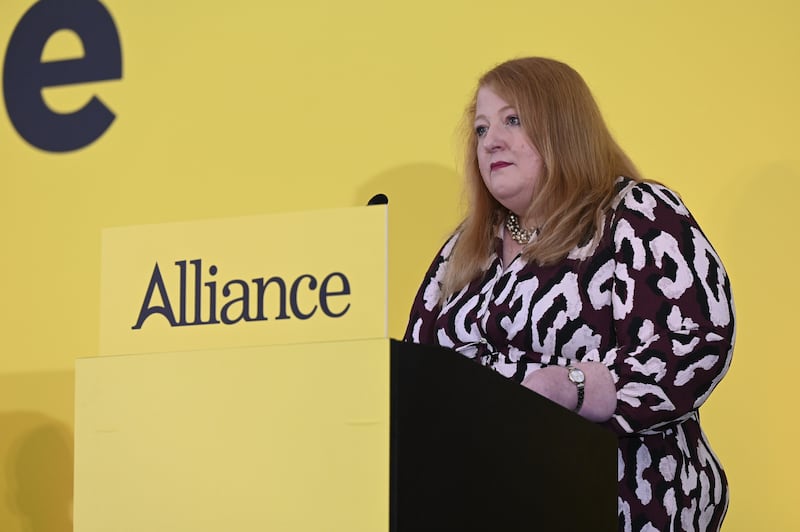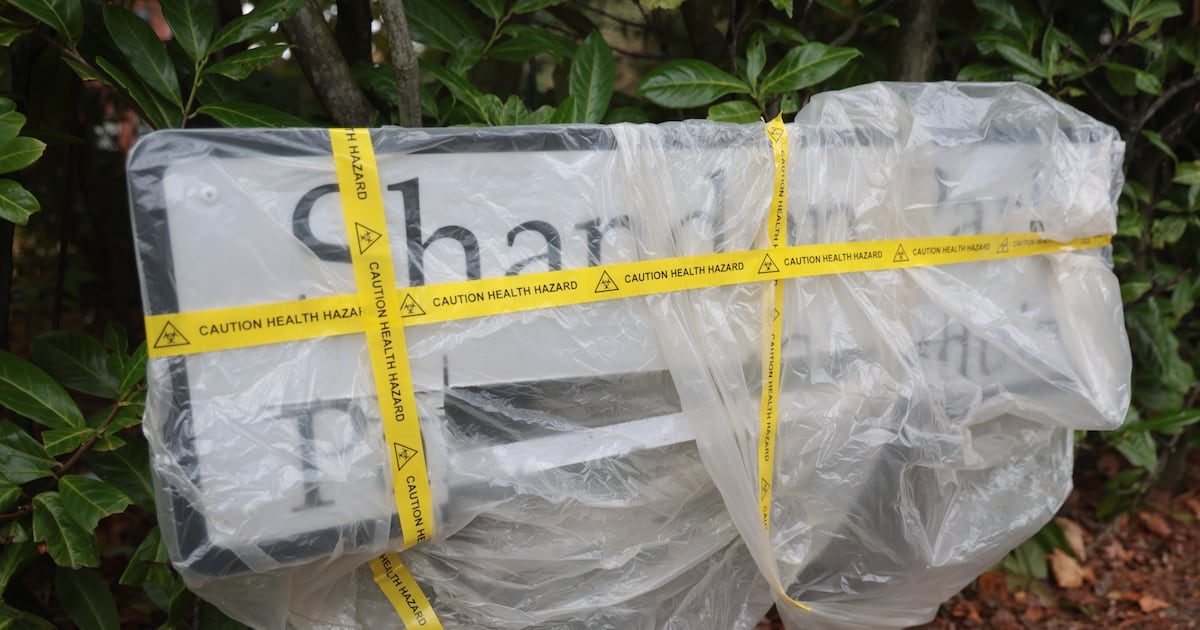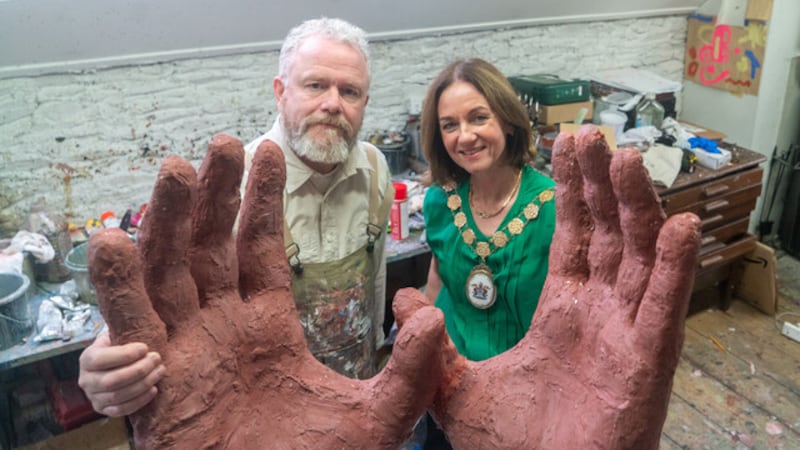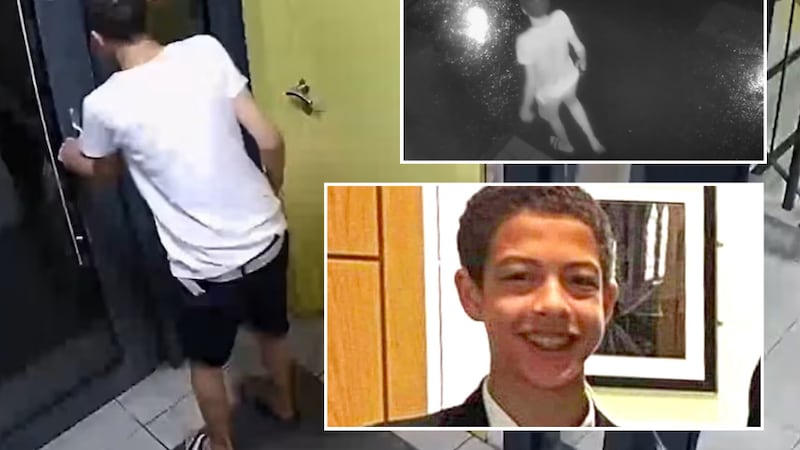The Alliance Party has found itself as a rare unifying force over the contentious issue of dual language signage in Belfast – with parties across the divide lining up to criticise what many see as flip-flopping over the issue.
In 2022, the party was instrumental in passing the legislation to replace the previous law, which required a two-thirds majority of residents on a street to support a dual language sign before it could be erected.
The new policy meant a sign could be erected with the support of just 15% of residents on a street.
Residents who do not vote are no longer counted as voting against. Applications for a sign can be made by one resident or any councillor, rather than by a third of residents as before.
Alliance has backed dual signage applications in areas where there has not been a clear majority in favour of the signage.
This is at odds with party leader Naomi Long’s claim on social media last week that “Alliance has only supported signage where a majority of respondents are in favour.”
Senior party figure, North Belfast MLA Nuala McAllister emphasised this refocused party position in a statement.
“Alliance is clear, any process for bilingual signage should be fair, transparent and command the confidence of local residents. Whilst the 15 per cent threshold is appropriate to trigger further consideration of an application, we do not support the erection of dual language signage where a majority of residents oppose it.”
The Alliance change of emphasis appears to have arrived as the political pressure has mounted.
And he added: “In east Belfast, one of those streets, Shandon Park, is the spiritual home of the ‘Cherryvalley Lady’, mocked by James Young in the 1970s. It has been the archetypal Alliance heartland for as long as Alliance has existed.”
Scores of dual language signs have been vandalised in the city, and Friday night saw a protest at the Olympic Leisure centre in south Belfast where dual language signs have been erected.
All other parties on Belfast City Council have firm views on the dual language signs, with unionists opposed and nationalists, the Greens and People Before Profit in favour.
Alliance has been operating a policy of seeking to push decisions on signs in contentious areas (where support is above 15% but less than 50%) to the back of the queue.
In April this year, Alliance councillor Micky Murray asked for decisions on mixed north Belfast streets, such as Sunningdale Park North and Ben Madigan Park South, to be put to the back of the queue until other applications had been dealt with.
However, Alliance’s first significant change arrived when it voted against dual language signage at Shandon Park, even though it met the 15% threshold.
Shandon Park is located in an area where party leader Naomi Long received the largest share of the vote in the 2022 Assembly elections and was elected alongside running mate Peter McReynolds.
However, Ms Long had lesser fortunes when she ran in the General Election for the area in 2024 – when she was pipped to the post by DUP leader Gavin Robinson.
Just under 17% of residents on Shandon Park who voted supported the new sign, with 49.6% against.
Under current Belfast City Council policy, “requests for dual language street signs can be made by an occupier of a street who is registered on the electoral roll, an elected member who represents that district electoral area, or a developer.
“Following an initial assessment, a street survey is carried out of all occupiers of the street. If 15% or more of all occupiers surveyed in a street want to have a dual language sign, a report is then be taken to the People and Communities Committee for a decision to be made.
“If the committee approves the request, it is then taken forward for approval at the monthly council meeting.”
When asked by the Irish News if there had been an official change in the Alliance Party’s policy, a spokesperson denied that there had been any such shift.
Asked to outline their current policy, the party said that they believed in “prioritising signs in the areas that most clearly want them”.
“Following any application made for dual-language street signage, if it reaches the 15% interest threshold we are supportive of that application then proceeding to the committee for further consideration,” a spokesperson said.
“Before voting on any case, we will assess it on the strength of support that exists and have consistently considered the views of residents in the streets.
“Given the significant backlog that already exists, we have consistently prioritised delivery on applications for the areas that most clearly want them. If an application hasn’t garnered sufficient support at this stage, we feel it is appropriate to put it to the back of the queue, with the understanding it can be revisited at a later date.”
“Unlike other parties, who initially also supported these parameters, we have remained consistent in our approach. We will continue championing an approach to this issue that places open and respectful dialogue at its centre,” they added in a statement to the Irish News.
Despite the party’s claims that they have been consistent in their approach, not everybody is convinced.
DUP Councillor Sarah Bunting has said that the party is now trying to distance itself from the very policy that it helped to usher in.
In her view, the party is changing its approach based on “when it’s convenient for them”.
“Alliance are co-authors of the 15% policy and whilst they may claim that threshold was the trigger for a vote to be taken, that isn’t how it is being implemented in practice,” she told The Irish News.
“Their position appears to be a little too convenient where they have ownership of the policy yet try to claim some distance from its implementation, where that is convenient for them.”
Ms Bunting, who represents the ward in which Shandon Park is located, has said that the recent conflict over street signs in the area has damaged community relations and called on the party to reconsider its position on the 15% figure outright.
“Alliance should at least indicate their willingness to review that threshold when it is now being used as a minority rule mechanism to introduce signs in opposition to the majority wish of residents in streets and the public overall,” she added.
Ms Bunting’s criticism of the Alliance Party position is echoed across unionism.
Some insiders in the Ulster Unionist Party told The Irish News that the Alliance was now experiencing “buyer’s remorse” after helping to greenlight the 15% policy.
“They are in a sticky situation and they are picking and choosing what they want. They held the balance of power in the last mandate and supported the policy knowing that if they didn’t like it in future then they could vote against it. However, that is no longer the case as the balance of power is effectively held by the Greens this time around,” said one Ulster Unionist figure.
An Ulster Unionist spokesperson said: “The fact is the Alliance Party’s fingerprints are all over the Irish Language signage policy in Belfast.
“The Alliance Party cannot wash their hands of this policy catastrophe. This is the policy Alliance voted for, supported, and defended. They U-turned in committee, endorsed it at full council, and misjudged the accountability mechanisms they thought would save them. That’s the Alliance Party.”
While unionism’s criticism of the party may seem scathing, there is also little sympathy from the other side of the chamber.
 Last week party leader Naomi Long said: “Alliance has only supported signage where a majority of respondents are in favour.”
Last week party leader Naomi Long said: “Alliance has only supported signage where a majority of respondents are in favour.”
Green Party Councillor Áine Groogan said the party seemed “uncomfortable” with implementing the policy despite voting it in.
“The Alliance party signed up to the Belfast City Council policy on Irish Street signs, that embedded international best practice on minority languages into our policy, but when it comes down to it, they seem to be uncomfortable actually supporting the policy in practice,“ she said.
“Minority rights are not subject to majority rule and I think it’s an incredibly problematic position to take to say you support Irish language rights but only when the majority approve of it. That’s not how rights work and Alliance should reflect on that.”
Meanwhile, SDLP councillor Seamas De Foite branded the party’s position as confused and said that far from celebrating the diversity of the city, the party’s position instead risks “sectarianising” the issue.
“Alliance’s position is confused,” he said.
“The survey exercise is not a referendum on the presence of dual language street signs, but rather an assessment of the presence of minority languages. This follows international best practice.
“Turning each survey into a referendum risks sectarianising an exercise that is intended to be about protecting minority language rights.”
Notably, there was just one party which had little to say about the Alliance Party’s current position on Irish language signage.
Sinn Féin declined to comment on the Alliance Party’s actions around Irish language signage, instead preferring to focus on its own approach to the issue.
A Sinn Féin spokesperson said: “This policy was developed in line with international best practice to support Irish as a minority language and protect the rights of its speakers.
“Sinn Féin will continue working to strengthen the rights of Gaeilgeoirí and boost the visibility of the Irish language.”


